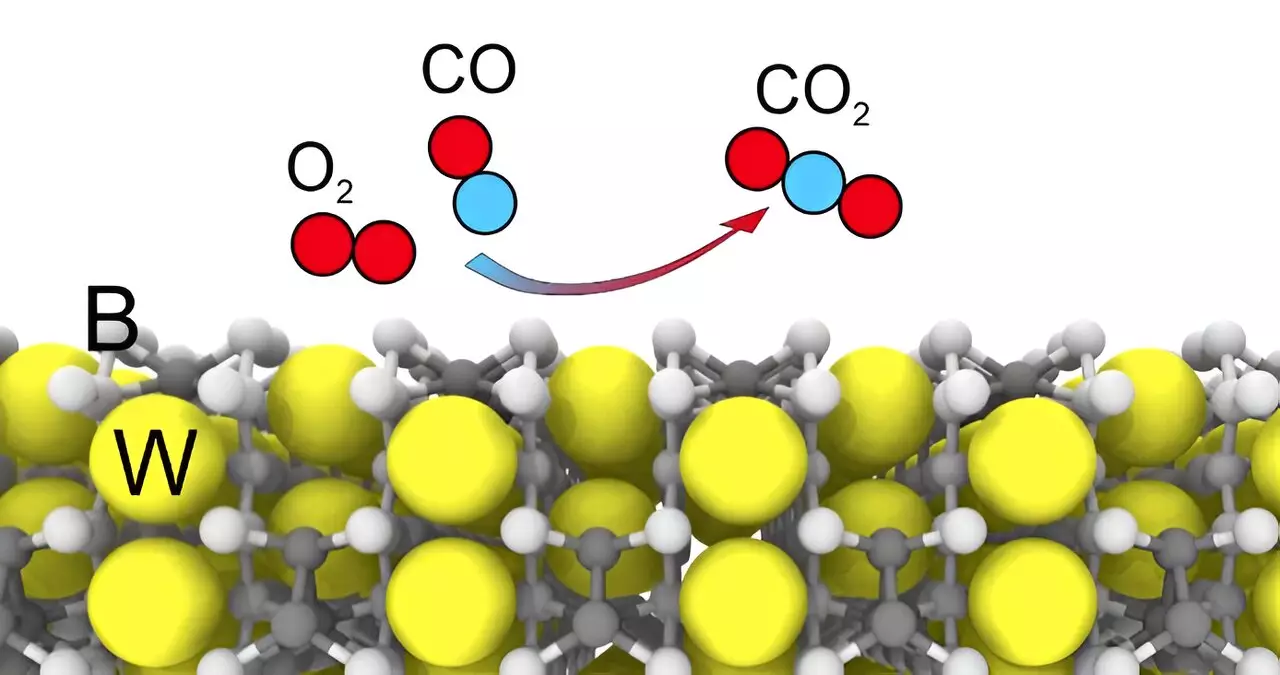Tungsten pentaboride, WB5-x, has recently been identified as a promising alternative to traditional catalysts due to its unique properties. A group of researchers led by Professor Alexander Kvashnin from Skoltech’s Energy Transition Center has published a new paper shedding light on the potential applications of this substance in various fields.
In the study, researchers found that the higher the boron content in the compound, the better its catalytic properties. This discovery was rather surprising, as traditionally, the active centers of catalysts are metal atoms. Tungsten pentaboride contains a significant amount of boron, making it a promising candidate for catalytic applications.
The study also revealed the stable surfaces of the compound, one featuring predominantly boron atoms and the other tungsten atoms. By comparing these surfaces, researchers determined that boron plays a crucial role in both adsorption and catalysis processes. This finding provides valuable insights into the mechanisms underlying the catalytic activity of tungsten pentaboride.
One of the key advantages of tungsten pentaboride as a catalyst is its resilience to poisoning from sulfur-containing compounds. Unlike catalysts based on noble and rare earth metals, which are susceptible to poisoning, tungsten pentaboride maintains its activity even in the presence of sulfur-containing impurities. This resistance to poisoning enhances the longevity and efficiency of the catalyst in various applications.
Tungsten pentaboride shows promise as a catalyst or co-catalyst in a range of applications, including the filtration of industrial exhaust gases, the extraction of precious metals, the photocatalytic production of hydrogen, and more. Its versatility and resistance to poisoning make it an attractive option for industries seeking high-performance catalysts that can withstand harsh operating conditions.
The study conducted by Professor Alexander Kvashnin and his team highlights the potential of tungsten pentaboride as a superior catalyst with unique advantages. From its exceptional catalytic properties to its stability and resistance to poisoning, tungsten pentaboride emerges as a promising candidate for catalytic applications across various industries. Further research and development in this area could unlock new possibilities for enhancing catalytic efficiency and sustainability.


Leave a Reply